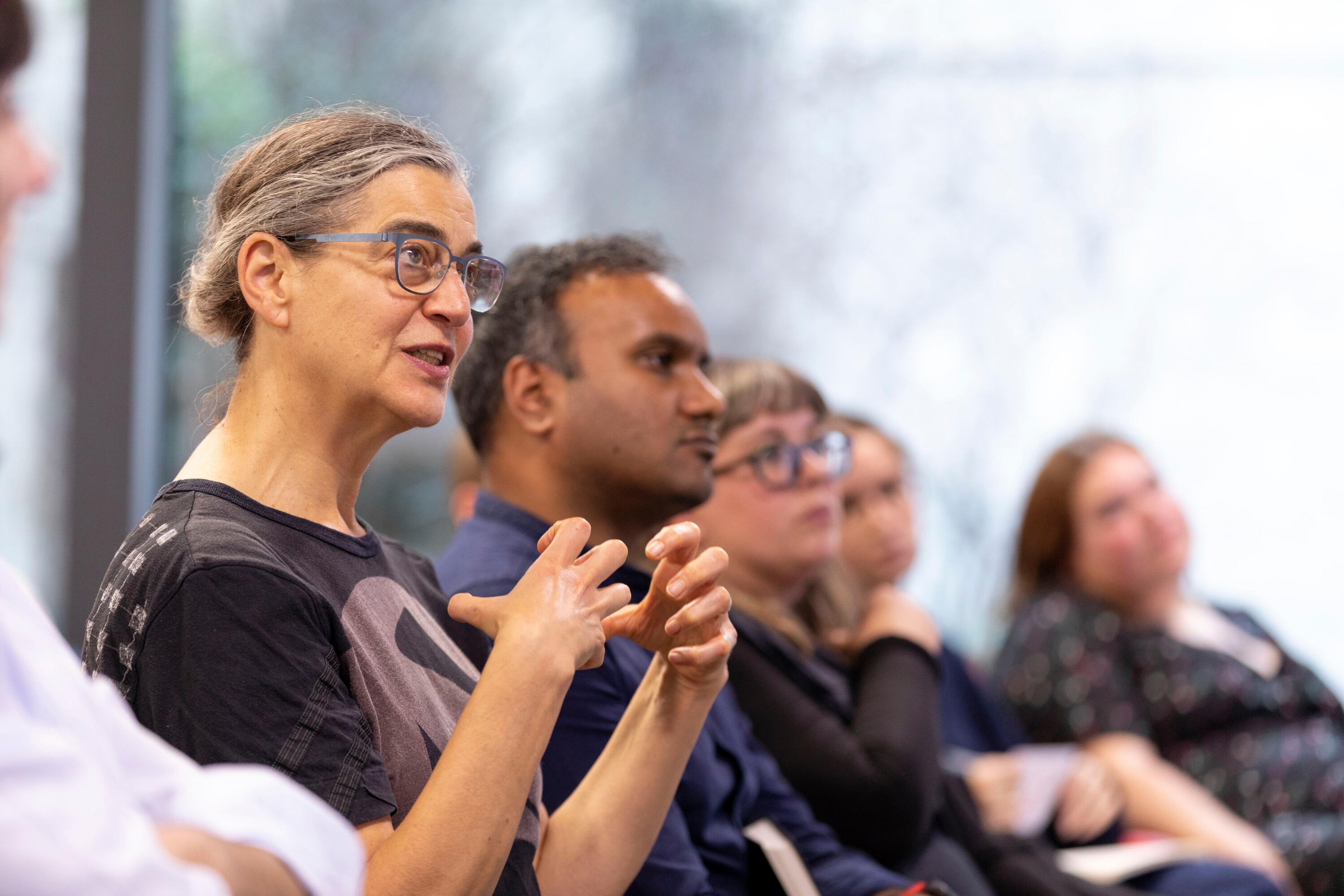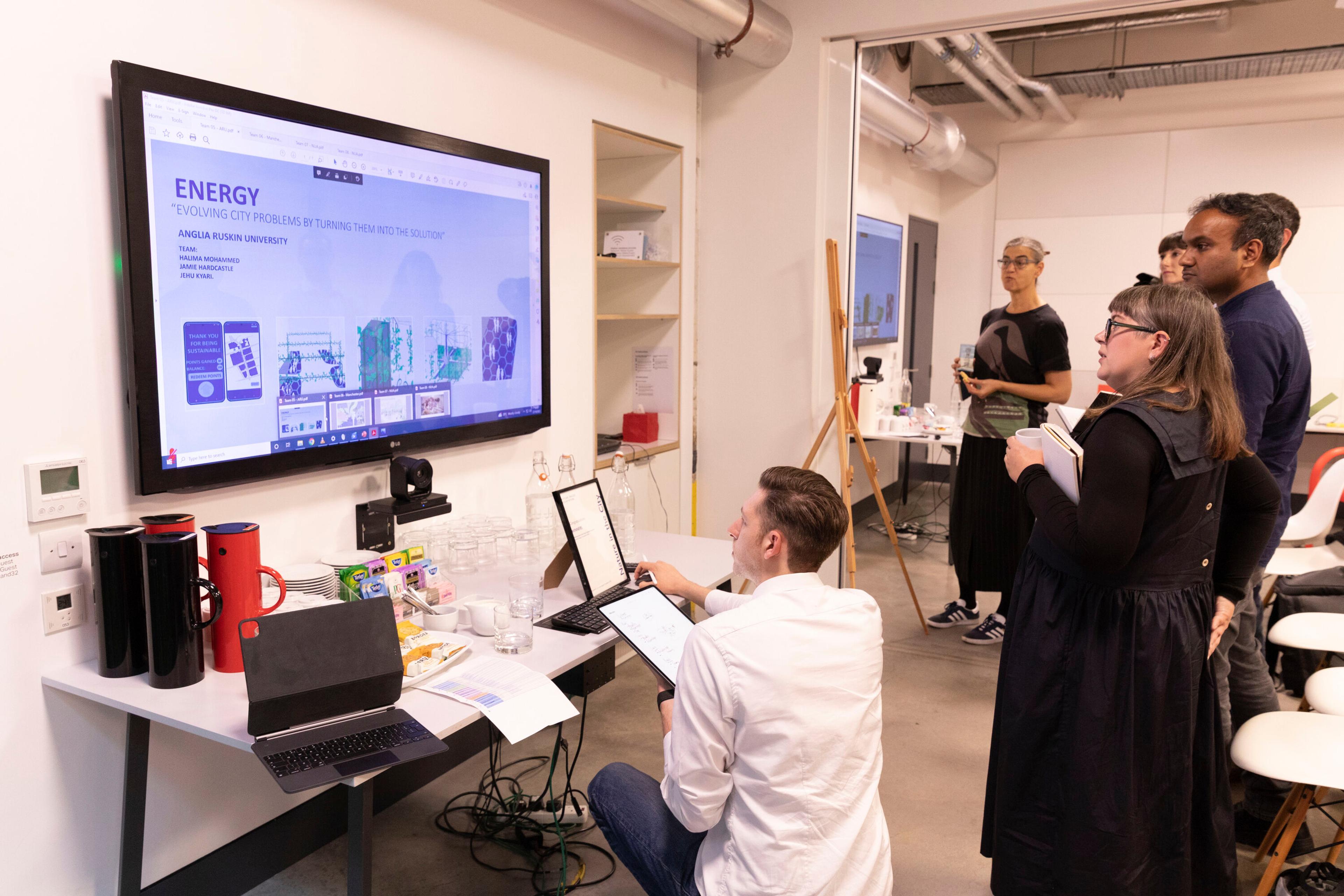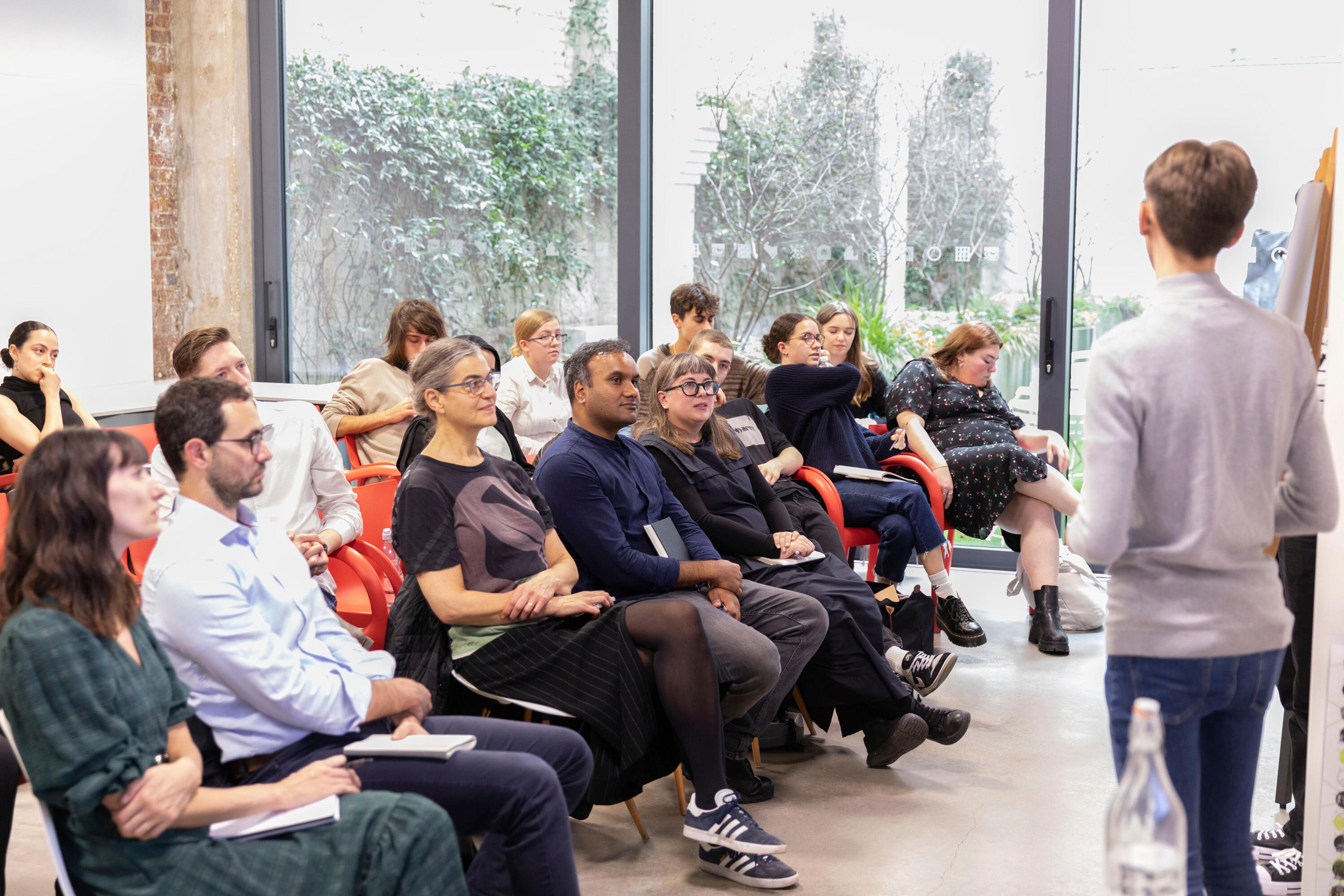- News
Proposal to tackle air pollution and improve wellbeing with nature-based design wins the latest FSF student competition
A team of three architecture students from Manchester School of Architecture has won the 2022 Future Spaces Foundation (FSF) student design competition with a proposal for a suite of nature-based interventions designed to tackle air pollution and improve wellbeing.
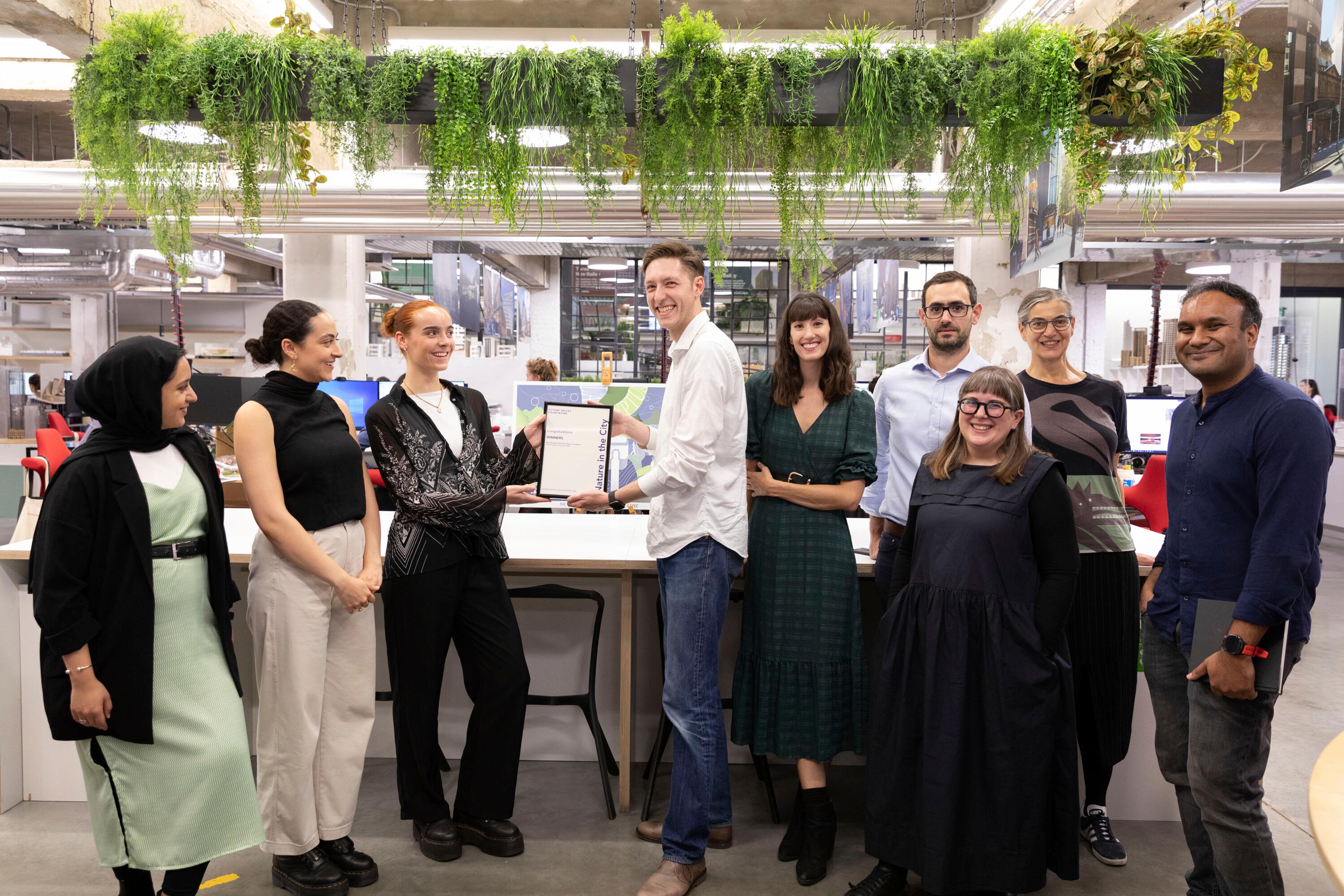
This year’s competition, the FSF’s eighth, challenged architecture students from five UK universities to explore environmentally and socially sustainable ways to bring nature into the city in the year 2030. Each team was assigned a motif to orient their responses around, from ‘play’ to ‘energy’ to ‘connect’.
The winning entry came from Team Breathe, who considered the importance of breathing from both a physical and mental perspective and how we might use nature to encourage this. Congratulations to Nosheen Aslam, Cecilia Morgan and Yasmin Nagdy, who scooped the £1,250 prize!
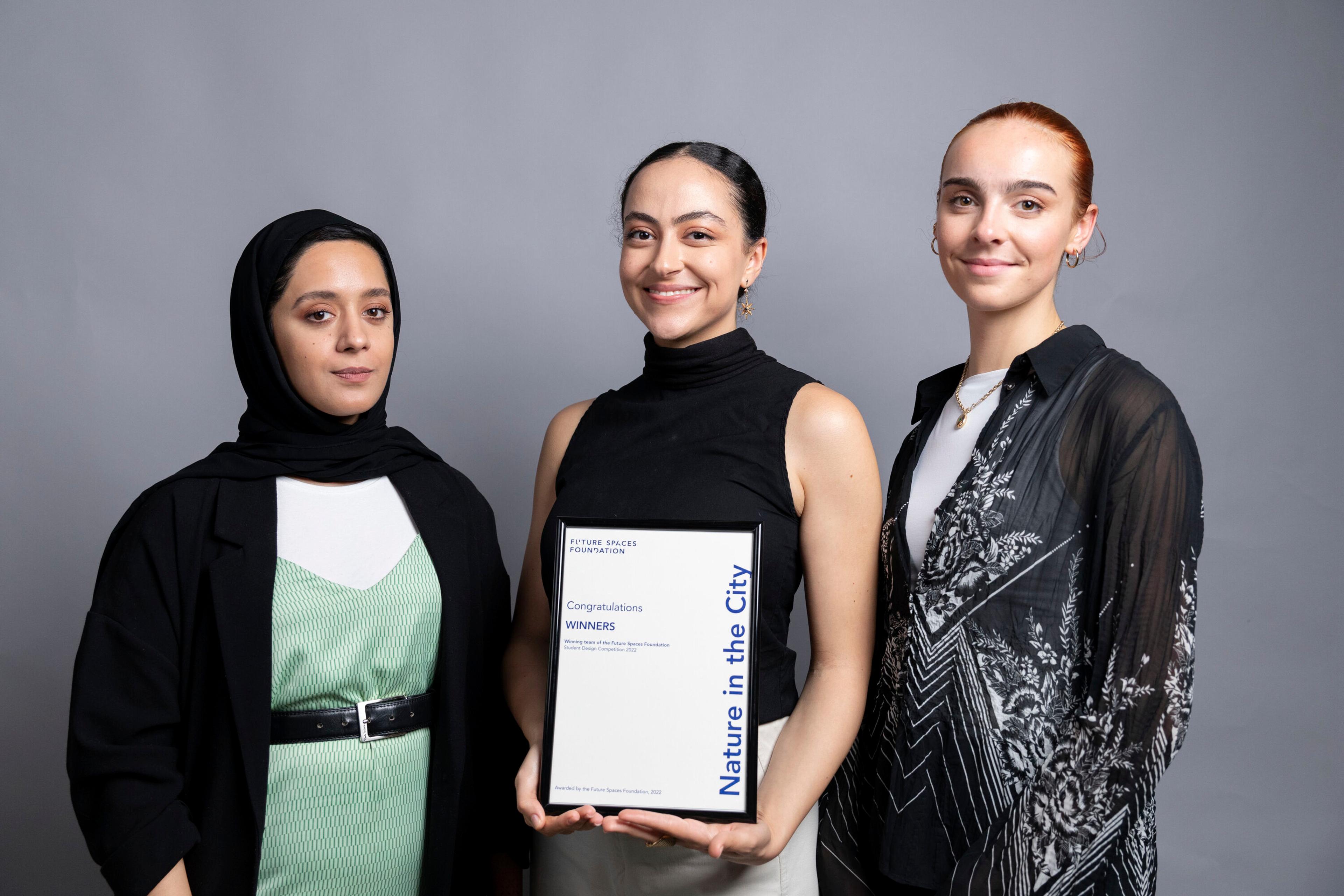
They proposed a holistic infrastructure inspired by the restorative capabilities of fungal mesh networks. The system, intended to work at different scales and across multiple demographics, includes immersive digital components as well as physical hubs that use natural scents to encourage people to come inside and take a breath. The judging panel was impressed with the team’s evocative graphics and thorough research, particularly into the health effects of air pollution.
More than 30 students participated in the competition, which was held in Make’s London studio for the first time since 2019. The other seven teams came from University of Greenwich, Anglia Ruskin University, University of Portsmouth and Norwich University of the Arts. The standard of entries was high, prompting the judges to award a commendation for the first time. This went to Team Relationships, who impressed with a proposal for a high-rise bridge that uses innovatively designed allotments to unite existing communities across a South London housing estate.
The 2022 competition theme stems from recent FSF research into the benefits of nature-based design solutions in urban contexts. Actively designing to protect and restore ecosystems and safeguard biodiversity is crucial to mitigating the effects of the climate crisis and improving human health and wellbeing in our cities.
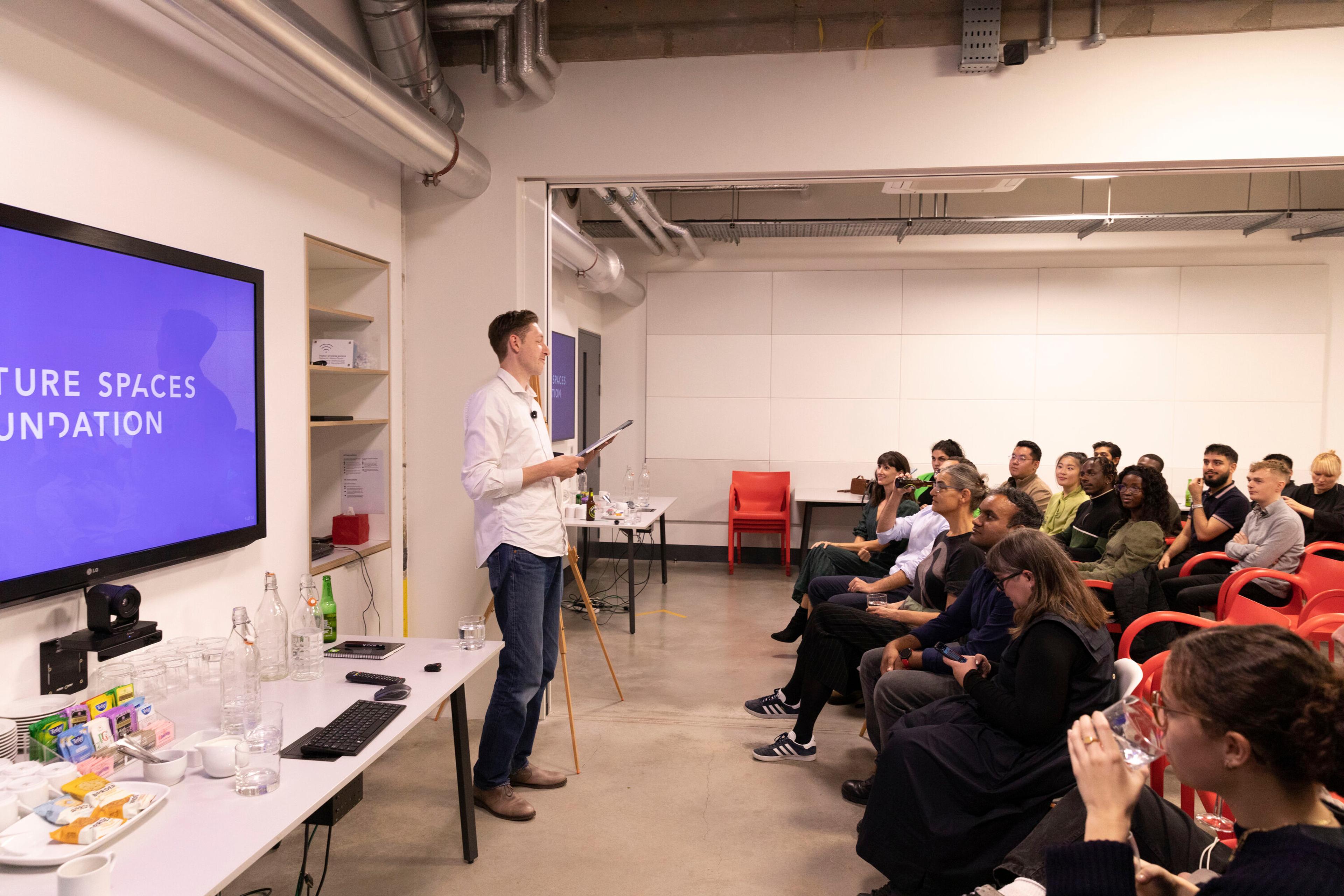
Peter Greaves, the FSF’s architectural lead and organiser of the competition, said:
“We’re pleased to welcome competition entrants back into our studio for the first time since 2019, and to witness their enthusiasm for this design challenge in person. Their presentation materials were some of the highest-quality ones we’ve seen to date, from custom models and drawings to high-spec films and more.”
Sara Veale, managing editor of the FSF, added:
“Our research indicates the increasing importance of urban infrastructure that embraces nature to address societal challenges like air quality and food security. It’s great to see the architects of the future approaching this with such thoughtfulness and creativity.”
All the 2022 entries can be viewed here.
A big thank you this year’s guest judges, who joined Peter Greaves and Sara Veale (both of the FSF and Make): Nicolo Bencini (AKTII), Laura Mark (Baylight Foundation), Dr Renee Tobe (University of East London) and Rahul Vishwakarma (Make).
1/4
